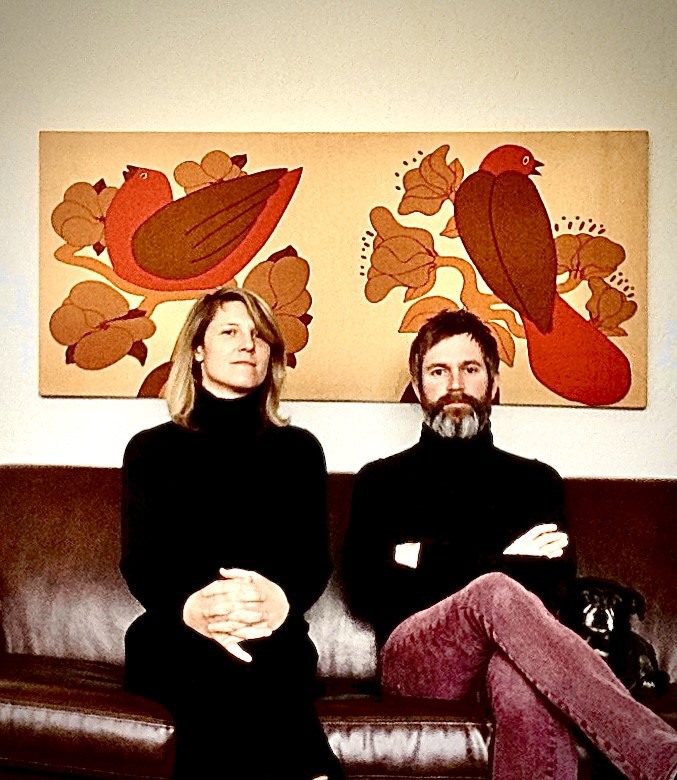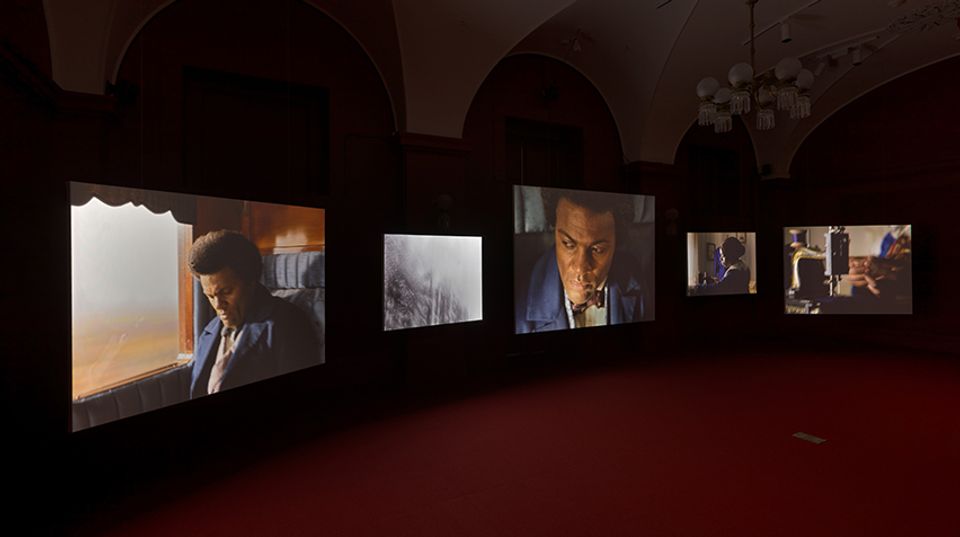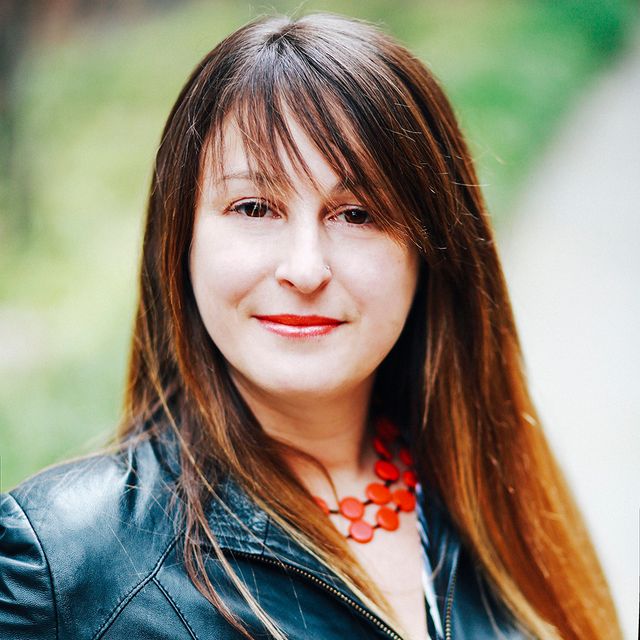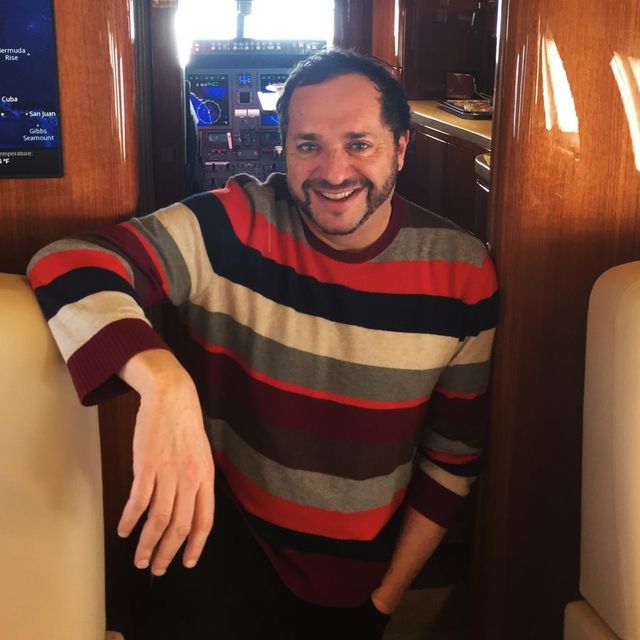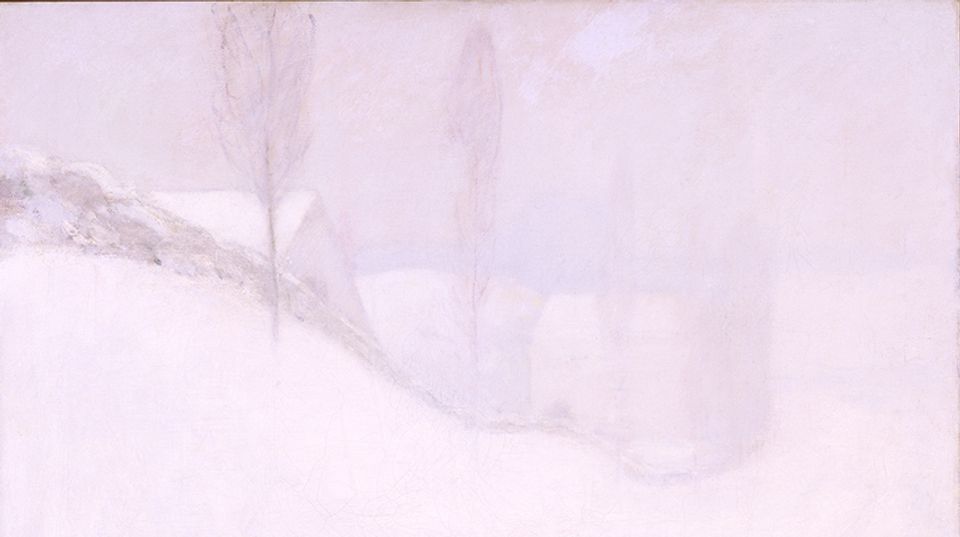From 2011 to 2020, SAAM hosted Luce Unplugged, a free, monthly concert series that celebrated the work of local musicians in its Luce Foundation Center. Since we hit pause on Luce Unplugged, we teamed up with a local music podcast, Hometown Sounds, to bring you music and conversations from your favorite DC artists. In our March episode, recording duo Astra Via discuss how they write new songs and reflect on old songs. To hear the full interview, visit hometownsoundsdc.com.
Hometown Sounds: How did the two of you come together to make music?
Jarrett: We were set up on a musical blind date. Adam Dawson is the drummer in Virginia Coalition, the band I have played in my entire adult life. Adam knew Olivia and had the foresight to say that I should meet her. I had only been in one band previously and we toured a lot, so I wasn't privy to the DC music scene at all, which was frustrating. We stopped touring as much when we got older and started having kids. I told him that I would like to meet local people that played music. She was the first and only person on his list. [Olivia and I] went to IOTA, of all places, and had beers. If this were a montage of our story, it would just fast forward to us talking right now on this podcast.
Olivia: Jarrett is very cool. He was leaving the bar, and he said, “Oh, I almost forgot.” He slides this burned CD over the table to me and he said, “Check this out.” I popped that burned CD into the aftermarket stereo in my Volvo wagon and I realized that this guy actually knows what he’s doing. I thought his writing and production was head and shoulders above anybody I'd heard in DC. I thought, Oh, wait a minute, let's get something cooking. In addition to enjoying making music together, we also became really good friends. That was 12 years ago.
HS: How do you write songs together?
Olivia: One of us brings some portion of a song, the other person adds their element, and then we pass it back and forth again. Ultimately, we get a somewhat cohesive version of a recorded audio experience. You go [to Jarrett’s studio] and then things happen. The studio seems to have a timeless, playful, “creativity happens here"—kind of quality that I really can't affix to my other bands. I love my other bands, but it is a quality unique to Astra Via.
Jarrett: In Astra Via, when we make music we are just one entity making something. There's no compromise or slogging it out. I don't think we've ever had a situation where we’ve disagreed. It’s always like, Duh, this is what it is.
HS: How do you feel about virtual concerts?
Olivia: My knee-jerk reaction is that they can be great. Whatever we can do to facilitate music being made or listened to or shared with people. While there is no substitute for being in a room with people in that sweaty, “Hey, what's up, I'm spilling my beer on you”, dancing together kind of experience, I think there is something that can be gained and enjoyed from technology making it possible to hear music from afar.
Jarrett: Music only makes money with live performances at this point. That’s the death throes of music, commercially. Artistically, you can move people [by publishing] music, but on some level, it's become a benevolent thing that you're offering the universe because you can't make a living doing it. So, if concerts happen in the metaverse, the artist will need to earn a profit. If you have virtual concerts and artists don't make money, that would probably be bad.
HS: When you're coming up with song ideas, how do you know if it’s going to be an Astra Via song or a song for any of the other musical projects that you're involved in?
Olivia: Sometimes it's both. For example, I brought Jarrett this song called “Action Junkie” that I wrote as kind of a country tune. Jarrett really liked the tune, but it wasn't Astra Via enough. So, Jarrett produced it and made it different, which made it cool. We had that version floating around for a hundred years as a demo and it ended up coming out as an Astra Via song. A couple of years later I [realized] that was one version, but I never did get that country/Western vibe. I ended up doing that version with Olivia and the Mates. That was produced by you, right?
Jarrett: I had had the best of both worlds: my own Astra version and The Mates version that was more traditional or organic.
HS: We just listened to an Astra Via track called “Fast Forward,” from the 2013 EP Echo Birds. What is it like to hear music you released almost 10 years ago?
Jarrett: When I first heard it again after a very long time, my first thought was that the videographer, Jeff Smith, did an awesome job with the video. He was a high school friend of mine, and the concept of the song was very nostalgic with a nonlinear timeline. It seemed like it needed an epic video and he nailed it.
Olivia: One of the glorious things about producing music over time is that I am so far removed from it now that I can just hear it as a song. And I think oh my goodness, this is wonderful. I don't really have any attachment to it anymore. I don't hear our individual performances. I don't have a reaction like, I should've hit that note better, or that was dumb, we shouldn't have broken it down that way, or whatever. Hearing it with this much detachment is actually a very fulfilling experience. I also remember making our portion of the video. We were running around with iPhones in Kensington. Maybe I didn't even have an iPhone, I don't even know.
Jarrett: I know I had an Android with this dumb sepia filter and, at the time thought, This is the cutting edge of cellular technology. I remember sending our files to Jeff and he must have said, Seriously, this is what you're sending me? He totally made it work. That DIY style is rampant now. I think it's a good thing. Technology is good; let's use it to make a bunch of good art—even if it's not great art—let’s just make stuff.














